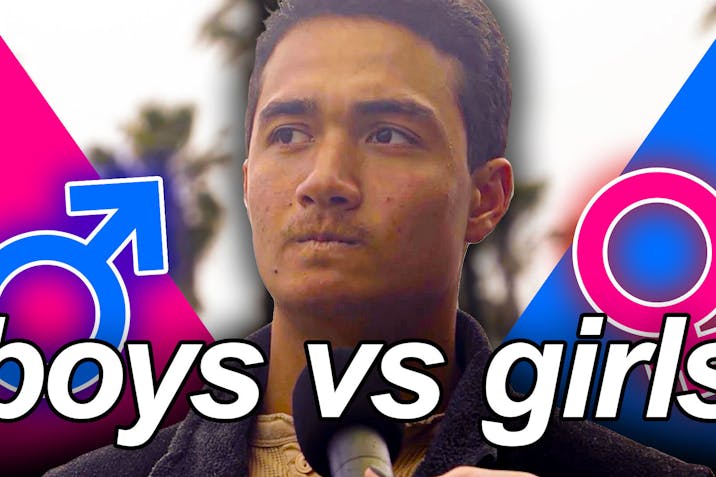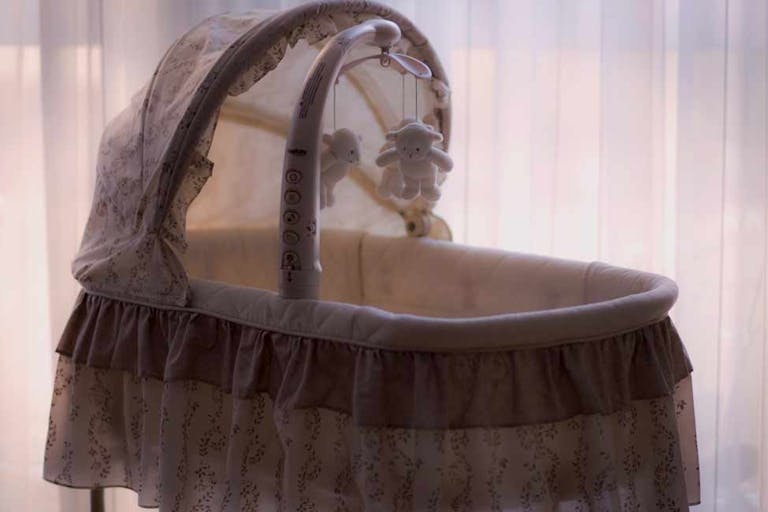
People on the street answer: 'Is sex-selective abortion ok?'
Bridget Sielicki
·
How 'Confugenics' contributes to the demographic winter in Asia
Various socio-cultural elements, including a huge pressure to not merely raise children but to raise them “as perfectly as possible," has indirectly and strongly contributed to low birth rates in many Asian countries.
When it comes to discussing the demographic crises facing many Asian countries like Japan, South Korea, and Singapore, economic and financial factors are not the only issues deterring many parents from these regions from having more children, or any children at all.
Confugenics refers to Confucian ideals regarding family honor and academic excellence as part of a child's filial duty to their parents.
Parents in societies with Confucian ideals will have fewer children so they can focus more resources on ensuring academic and financial achievement for the one or two children they do have.
Therefore, every child’s upbringing must meet certain “key performance indicators” — private tutoring lessons, elite educational experiences at “top schools,” constant parental supervision to ensure no child “goes off track" — along with resource-intensive benchmarks.
Some parents have begun engineering children through IVF to try to create the 'ideal' child.
The perfectionist phenomenon, now referred to by sociologists as “confugenics," is premised on Confucian ideals regarding family honor and academic excellence.
Historically, many Confucian societies, such as South Korea and China, valued institutional success as well as academic and career excellence as part of children’s filial duty to their parents and extended family.
Confucianism, an integral part of East Asian cultures, links the elements of family harmony, academic/career excellence, and social status intricately together. Such elements influenced civil service examinations like the ones conducted in Imperial China, with individuals preparing for such examinations or assessments months, if not years, in advance.
Fast forward to modern times, when Japanese, South Korean, Chinese, and even Singaporean societies still retain vestiges of Confucianism, and many parents harbor high aspirations for their children to excel in school and beyond.
In order for their offspring to access as many resources as possible to attain academic excellence, many parents have chosen not to have more than one or two children. The mindset is that having fewer children will enable them to channel their resources (time, energy, and finances) into each individual child, to maximize the odds of their children performing well academically.
According to this line of thinking, every child’s upbringing must meet certain “key performance indicators” — private tutoring lessons, elite educational experiences at “top schools,” constant parental supervision to ensure no child “goes off track" — along with resource-intensive benchmarks.
Some have even opted out of parenthood altogether.
Journalist Waka Ikeda aptly described the situation facing many parents in Japanese (and by extension, East Asian) societies today in an article for The Japan Times. “What if the true crisis in East Asia isn't that families are having fewer children, but that society demands every child be a flawless masterpiece?” she asked.
South Koreans are traveling abroad for sex-selective IVF
“This isn't just about money or career ambitions. There's something deeper at work here; what I've come to think of as the 'perfect child tax' — the crushing social and financial burden that East Asia's perfectionist cultures place on families. To be fair, this is not solely an East Asia characteristic, but it’s far more pronounced here than elsewhere. The numbers are staggering when you dig into them."
She explained that she knows of parents — "who are by no means rich" — who spend $20,000 per year on supplementary schools and private lessons for a single child. Then, she said, there are the "elaborate kira kira (sparkly) bento boxes many Japanese mothers craft every morning, the handmade school bags that must meet precise measurements, the endless PTA demands that essentially judge whether you're a 'good mother.'" She wrote:
These aren't choices. They're social obligations that create a suffocating environment where every aspect of parenting gets scrutinized.
In light of what Ikeda portrayed, many Asian parents fear failing to provide “the perfect start” for each child in life, thus explaining their decisions not to have many or any children. The children of such parents also experience pressures, with their self-worth tied to their ability to perform or even to out-perform their peers.
For instance, a Straits Times (ST) article dated March 2, 2025, explored the trend of single-child families in Singapore, with a detailed case study on why educator Hazel Lim and her husband decided to only have one child. Referring to Lim’s case, the ST article explained, "Increasingly, more couples like her are choosing to forgo having a second kid for reasons such as preferring to devote more time and resources to their only child.”
With the rise of new artificial reproductive technologies (ART), confugenics is now intertwined with polygenic embryo screening and gene editing, raising the stakes for parents to select or raise genetically and intellectually "ideal" children.
This is an attempt at "child engineering” through cognitive enhancement tests and genetic screening procedures for embryos. These “perfectionist” parents try to deal with the cultural pressure for their children to excel by participating in IVF to create the “perfect child."
This relentless pressure often results in financial strain for families, and the majority of the embryos they create will never be born.
Such deeply entrenched cultural attitudes towards children, family, and social status cannot be dealt with overnight with a slew of top-down natalist policies aiming to encourage childbirth and child-rearing.
The end result is an overall decline in fertility in many Asian countries, with long-lasting social consequences, such as a decreasing number of people in the workforce and aging populations.
For pro-lifers in Asia and beyond, “confugenics” undoubtedly spells bad news as it encourages parents and society as a whole to regard children as “tokens of achievement” and “social status," instead of as “gifts from God” with intrinsic value. In such societies, large families can be ostracized or viewed as “irresponsible," especially if the families in question have limited financial means.
In view of such sociocultural pressures, government policies to encourage childbirth will likely not suffice. Instead, substantial value shifts exhorting parents to welcome each child they have as a gift, regardless of the perceived "flaws" of their child, would be more impactful in addressing some of the root causes of Asia’s demographic winter.
Live Action News is pro-life news and commentary from a pro-life perspective.
Contact editor@liveaction.org for questions, corrections, or if you are seeking permission to reprint any Live Action News content.
Guest Articles: To submit a guest article to Live Action News, email editor@liveaction.org with an attached Word document of 800-1000 words. Please also attach any photos relevant to your submission if applicable. If your submission is accepted for publication, you will be notified within three weeks. Guest articles are not compensated (see our Open License Agreement). Thank you for your interest in Live Action News!

Bridget Sielicki
·
International
Bridget Sielicki
·
International
Cassy Cooke
·
International
Cassy Cooke
·
Issues
Nancy Flanders
·
International
Angeline Tan
·
International
Angeline Tan
·
Activism
Angeline Tan
·
International
Angeline Tan
·
International
Angeline Tan
·
International
Angeline Tan
·